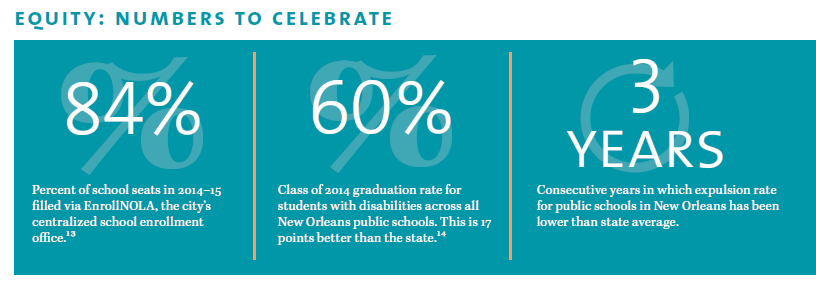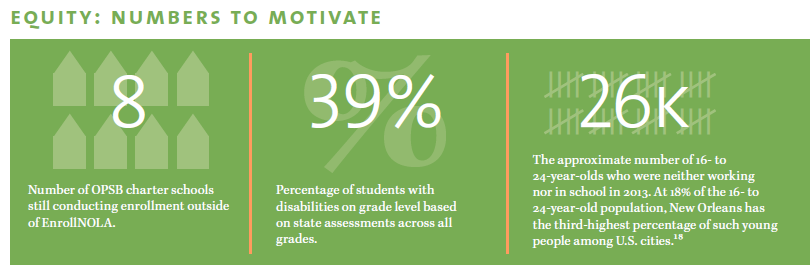In August of this year, NSNO released our report Ten Years in New Orleans: Public School Resurgence and the Path Ahead. Over the next few weeks, we’ll be highlighting some of our key findings.
New Orleans has become a leader in meeting the needs of our country’s most vulnerable students and families.
No longer bogged down with school operation, RSD officials concentrate on equity in the school system—partnering with OPSB when possible. Charter schools collaborate with RSD to create fair policies and systems, ceding some autonomy to ensure a level playing field across the city.
Innovative solutions to equity challenges have become a hallmark of the New Orleans system—from transparent school enrollment through the centralized EnrollNOLA system, to distribution of funds based on the unique needs of students with disabilities, to a unified discipline process that administers fair hearings and recommends expulsions based on a common standard, to free citywide transportation provided by all RSD charters and many OPSB charters.
New Orleans’ progress on equity complements the city’s headline gains in student achievement: 80 percent of families received one of their top three school choices through EnrollNOLA, and all participating schools “backfill” empty spots in upper grades. The city’s graduation rate for students with disabilities is 60 percent—far exceeding the statewide average of 43 percent. The suspension rate is lower than the pre-2005 figure, and the expulsion rate has been below the statewide average for three consecutive academic years.
New Orleans’ decentralized system has demonstrated the capacity to identify and decisively correct a range of equity challenges. Public education is about more than median achievement levels—it also must ensure that every child, no matter their circumstance or challenge, has the supports he or she needs to complete school and flourish as an adult.
New Orleans is rapidly becoming a system that delivers on that promise.


